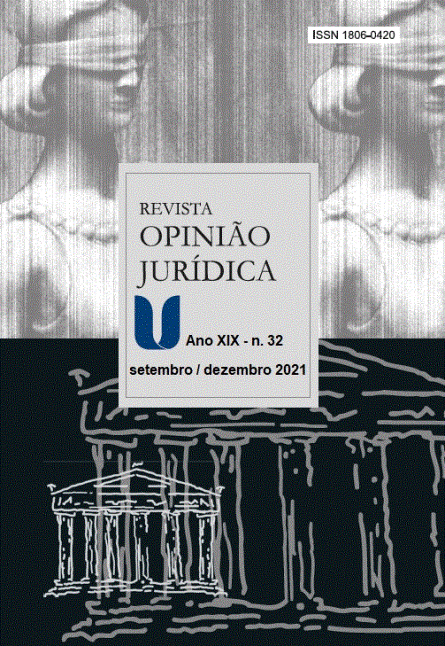PROMOTING THE DEVELOPMENT AND TRANSFER OF MARINE TECHNOLOGIES AS A MECHANISM FOR IMPLEMENTING THE SUSTAINABLE DEVELOPMENT GOALS: INTERNATIONAL LEGAL ASPECT
DOI:
https://doi.org/10.12662/2447-6641oj.v19i32.p184-201.2021Keywords:
Criterios y Directrices de la Comisión Oceanográfica Intergubernamental sobre Transferencia de Tecnología Marina, Convención de las Naciones Unidas sobre el Derecho del Mar, Objetivos de Desarrollo Sostenible (ODS), protección y preservación del medio marAbstract
Objective:We seek to understand the definition of marine technologies, placing it in the historical context of narratives of international law of the sea. We seek to analyze the criteria, conditions and principles of their transfer and the international legal framework and interstate practice. We seek to investigate the international legal regulation of the development and transfer of marine technologies in legal research. The authors consider the importance of facilitating the transfer of marine technology in relation to promoting marine scientific research which is reaffirmed by international agreements, including the Rio+20 outcome document: The future we want, and the outcome document of the third International Conference on Small Island Developing States as well as discussions on the Sustainable Development Goals, numerous UN General Assembly resolutions.
Methodology: The research uses general scientific and special cognitive techniques wherein legal analysis and synthesis, systemic, formal-legal, comparative-legal, historical-legal and dialectical methods are applied.
Results: We found out that despite the fact that the UNESCO IOC Guidelines have clarified a number of provisions of the 1982 UN Convention on the Law of the Sea concerning the development and transfer of marine technologies, this document needs revision. In particular, it is necessary to specify the criteria and terms for the transfer of marine technologies to both developed and developing states. It is not clear from the text of the document which technologies should be transferred free of charge or at a reduced cost to developing states and states with an unfavorable geographical position. We also point out the as part of the implementation of SDG 14, the Intergovernmental Oceanographic Commission is charged with elaborating research capacity in marine scientific research and optimizing the transfer of marine technology to developing and least developed states. The research indicates that the modern international legal framework needs a revision.
Contributions: Following a review of the content, we raised possible problems, strategies, suggestions and guidelines for the marine technologies.The authors come to the conclusion that promoting the development and transfer of marine technologies to developing states and states with an unfavorable geographical position is not only consonant with the SDGs, but is also one of the mechanisms for their implementation. The authors encourage the complement to the international legal regulation of the transfer and development of marine technologies.
Keywords: Intergovernmental Oceanographic Commission’s Criteria and Guidelines on the Transfer of Marine Technology. The UN Convention on the Law of the Sea. Sustainable Development Goals (SDGs), protection and preservation of the marine environment, biodiversity. COVID-19.
Published
How to Cite
Issue
Section
License
CESSION OF COPYRIGHTS
The submission of articles to analysis for publication on Opinião Jurídica implies the author(s) transfers copyrights to Centro Universitário Christus – UNICHRISTUS for reproduction, publicizing, distribution, printing and publication, according to the Publication Norm 414R, Opin. Jur., Fortaleza, year 12, n. 16, p.1-414, Jan./Dec. 2014, costs to be bore by UNICHRISTUS, in whatever format or means that may or shall exist, in accordance to articles 49 and following of Federal Law 9.610/98.
1. In ceding copyrights, the author(s) agrees to do so in exclusivity, free of charge and for the totality of the work.
2. UNICHRISTUS may make the work, in its entirety or in parts, available for scholarly purposes, without altering its contents, except for small corrections that are deemed necessary.
3. The cession of copyrights is valid in all countries and for versions of the material in its original language or translated into a foreign language.
RESPONSIBILITY FOR THE CONTENT
By submitting an article, the author(s) declare to have sole responsibility for the content of the piece and is(are), therefore, responsible for any judicial or extrajudicial measures referring to it.
1. In case of joint authorship, all authors are considered collectively responsible, except when proved otherwise.


















